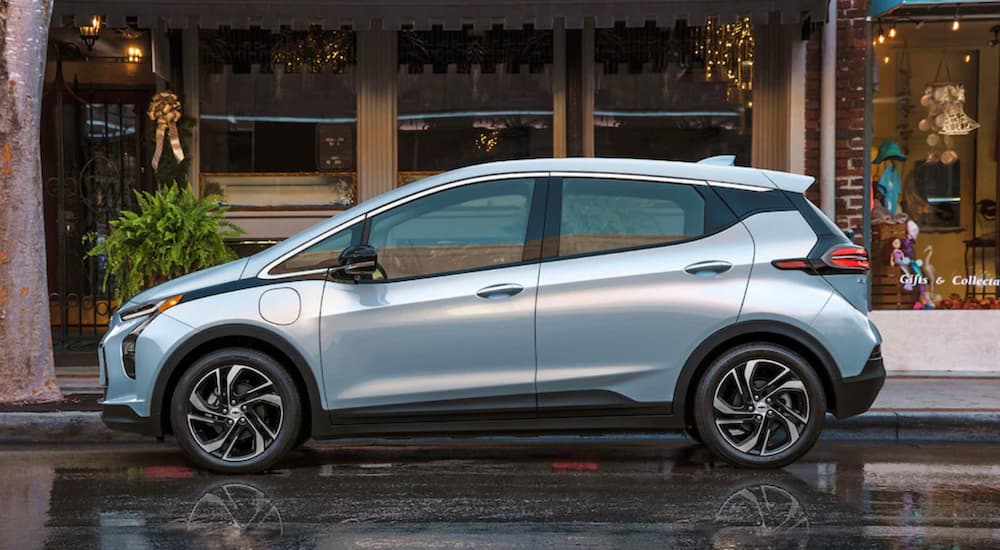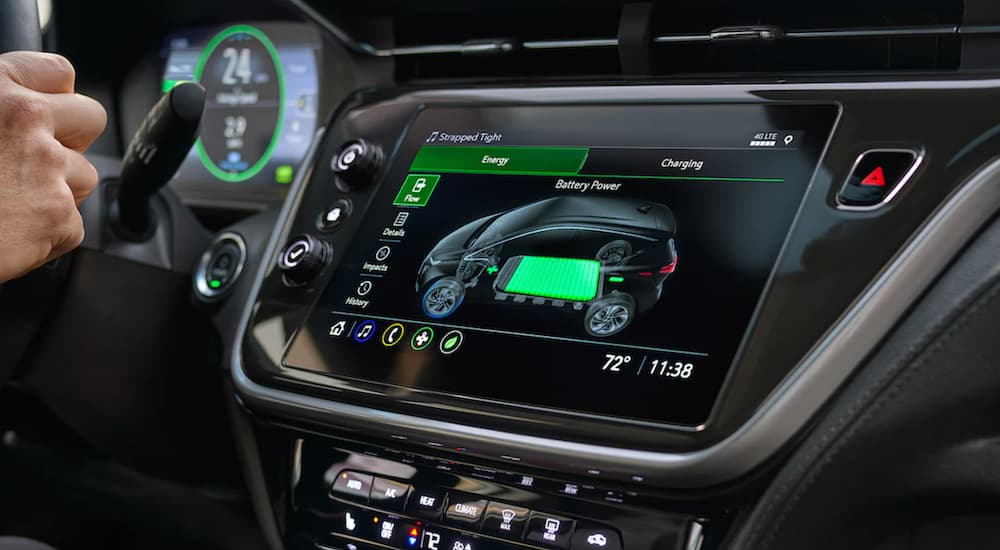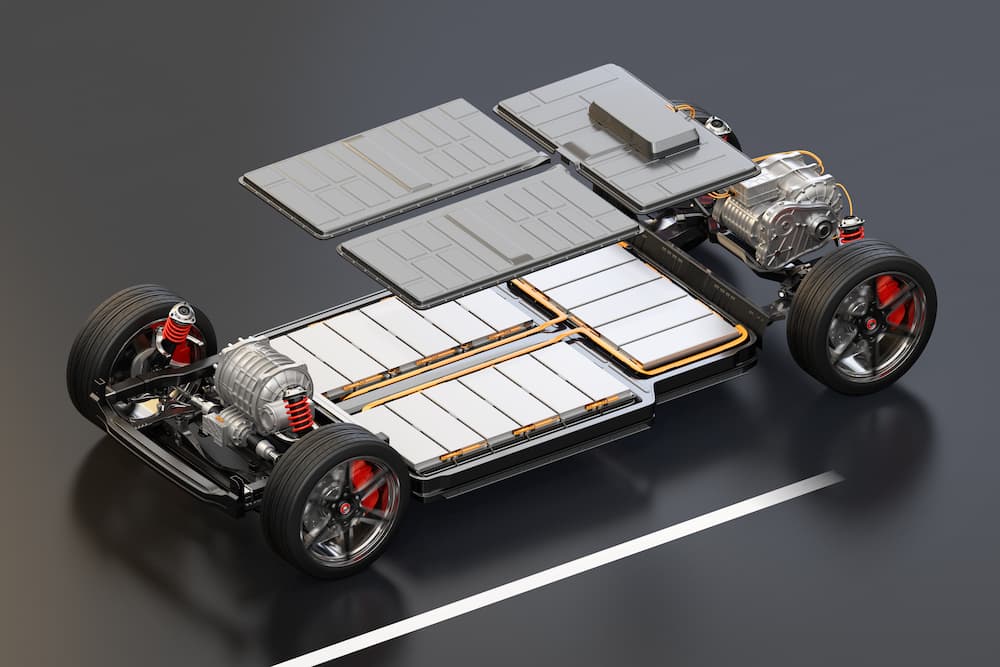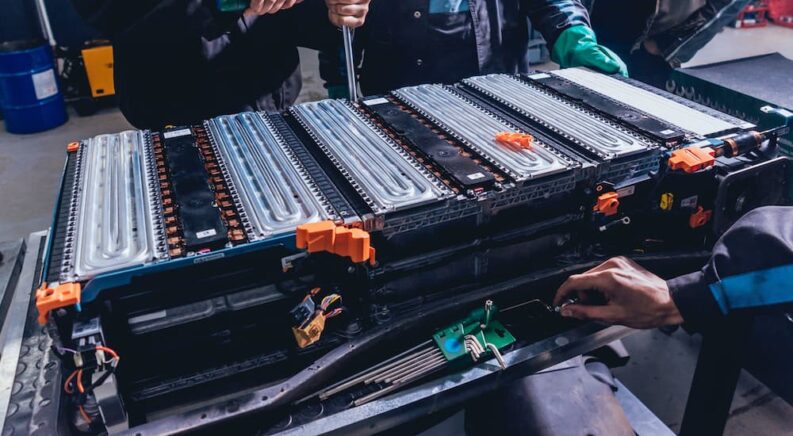Hybrid and electric vehicles (EVs) offer several advantages over their gas-powered counterparts, giving drivers a real incentive to explore these alternative fuel options. Not only are hybrid and electric vehicles better for the environment, but they can also be helpful for greening your own wallet. According to a recent study by Consumer Reports, the average EV driver will save around $4,700 or more in fuel over the first seven years of ownership. That’s a compelling statistic, but it’s only half the story.
Alternative fuel vehicles might come at a premium, but if you crunch the numbers, they still represent a real bargain. Take the Chevy Bolt, for example; this EV might cost $8,000 more than a similar gas-powered subcompact like the Hyundai Elantra GT, but it boasts a much lower ownership cost over the first 200,000 miles. Drivers could save an estimated $15,000 by the time the Bolt hits that all-important 200,000-mile mark, and it’s only getting better.
As technology has evolved and more automakers have entered the business, hybrid and EV vehicles are more affordable than ever. That’s been especially true over the last few months with brands slashing prices and a revived tax credit program offering US drivers up to $7,500 in savings when purchasing a hybrid or EV. The best part? This program isn’t just limited to new EV and hybrid models; as part of the Inflation Reduction Act signed into law in mid-2022, preowned EV and hybrid vehicles can qualify for a $4,000 tax credit or 30% off the cost of the vehicle—whichever is lower.
The revamped tax credit could go a long way in improving access for drivers on a budget, but these hybrid and electric vehicles face one challenge that’s unique to the used market: old batteries that are past their prime. Battery replacement is the great hidden expense of the EV lifestyle, with some battery replacement costs almost eclipsing the cost of the vehicle itself. It can be a non-starter for some drivers, but for those willing to deal with the associated risks, it can pay dividends in terms of overall cost of ownership. Read on as we explore the true cost of EV battery replacement, explore some more affordable options, and see how different models compare when it comes to cost.

Wheezing the Juice
Before we dive into the cost and process of replacing your vehicle’s battery, we need to define a few terms. While people tend to lump all EVs together, this category is actually made up of three distinct subsets: full hybrids, plug-in hybrids, and all-electric vehicles (EVs). These vehicles all operate in slightly different ways—a plug-in hybrid can be refreshed at a charging station, a hybrid tops off its battery using its gas engine, and an EV lacks a gas engine altogether—but that’s not relevant to the replacement process. All you need to know is that, on average, a vehicle battery costs around $137/kWh.
The biggest difference between hybrids, plug-in hybrids, and EVs comes down to the size of these batteries. Hybrids tend to have the smallest batteries of the bunch, ranging from 1.5 kWH in the Ford F-150 Lightning to 1.3 kWh on the 2015 Honda Accord Hybrid. Plug-in hybrids (PHEV) represent the middle ground of battery capacity, usually clocking in between 9 kWh and 13 kWh on average. Given their lack of gas-powered engines, it’s no surprise to learn that full EVs have a correspondingly large battery—usually around 40 kWh—though some extended-range models might climb as high as 90 kWh. This range of energy capacity is largely tied to how many individual cells a battery has; for a hybrid like the F-150 Hybrid, that number could be as low as 76, but it would rise five times higher for a Mustang Mach-E that’s packing 376 cells.
Of course, bigger isn’t always better. The larger the battery, the heavier it is, which can greatly affect factors like ride quality, efficiency, and towing/hauling capacity. A hybrid’s battery might weigh as little as 80 lbs whereas the mammoth power pack in a full, extended-range EV like the Mustang Mach-E can tip the scales at over 1,300 lbs.

Doing the Numbers
Battery costs have fallen dramatically over the last ten-plus years, and experts predict they’ll continue to do so, with the average price sinking as low as $100/kWh by 2026. Given the fact that that number was as high as $1,200/kWh just 12 years ago, that marks a major improvement, but the unexpected cost of a new battery can still be an unwelcome surprise for many EV and hybrid drivers.
So how much should you expect to pay for a replacement battery? For hybrid and PHEV drivers, the cost is between $2,000 and $8,000 for a new battery, depending on the make and model. EV drivers will have to shell out a little more cash to keep their vehicles on the road with an estimated battery replacement anywhere between $4,000 and up to $20,000 for high-end models like the Tesla Model S. It’s no small chunk of change, but, in all likelihood, it’s an expense you’re probably only going to incur once over the course of your vehicle’s life. Pretty much every hybrid, PHEV, and EV sold these days comes with an eight-year, 100,000-mile warranty, meaning you won’t have to worry about battery replacement until more than halfway through a vehicle’s service life. Of course, this timetable might be a little hard to predict when you’re dealing with a pre-owned electric vehicle, so let’s dive in and see what the battery replacement process is all about.
If a new battery replacement is a little out of your price range, there are a few other options available. EV and hybrid electric vehicles have been around long enough that a new cottage industry has popped up to solve the inevitable battery dilemma; there are now a number of shops that offer rebuilt, reconditioned, and used batteries for electric vehicles. While these obviously won’t perform quite as well as brand-new batteries, they can offer some real savings for drivers on a budget.
Of these options, a rebuilt battery offers the most longevity, but it also tends to be the most expensive. Reconditioned or refurbished batteries are more of a stopgap measure than a long-term solution, breathing some extra life into a used battery and allowing drivers to squeeze a little more time out of their old batteries. Used hybrid batteries represent the most affordable option of the three, sometimes costing as little as $500; but you get what you pay for, as used batteries often lack the range and longevity of a new or reconditioned battery. No matter which route you take, make sure to ask for a diagnostic report of the battery’s health before plunking down your cash. It’s almost impossible to tell what sort of shape a battery is in just by looking at it, which is why these diagnostics are so important.

Location, Location, Location
The cost of the battery isn’t the only charge you’re going to incur when you go to replace your current pack. Installing a new battery on an electric vehicle can add up to $2,500 to the bottom line, but again, it all depends on what sort of vehicle you’re rolling with. These costs vary based on several factors, but it often comes down to how easy it is to access the battery itself.
Take the Toyota Tundra i-FORCE MAX hybrid pickup, for example; this truck’s gas engine is supplemented by a 1.87 kWh battery located just behind the driver’s seat, which makes replacement a relatively simple task. Compare this to the Ford F-150 PowerBoost hybrid pickup, where the 1.5 kWh battery is mounted underneath the truck bed. This inconvenient positioning will necessitate a little more time and effort from your local service center, which will have to fully remove the bed in order to access the battery.
Of course, it could be worse. On the Jeep 4xe PHEV, the 17.3 kWh battery is well-hidden deep within the vehicle between the frame rails. Protected by armored skid plates, this Jeep battery can take hours to access, driving up labor costs and adding a significant amount to the overall bill. Generally speaking, the simplest replacement jobs can be completed in anywhere from one to three hours, while the more complicated projects can stretch as long as six.
Charged to the Fullest
Battery replacement costs can be a discouraging factor when considering the switch to an electric, hybrid, or PHEV vehicle, but it all comes down to doing your research. Full EVs, hybrids, and PHEVs can vary widely in terms of battery replacement cost, with the differences largely coming down to the size of each type’s battery pack. If you want to avoid some big-ticket expenses down the line, consider a hybrid with a smaller battery. If money isn’t a factor, a full EV offers unrivaled savings in terms of overall fuel costs but can become an expensive venture if you’re suddenly faced with a $20,000 battery replacement bill.
Even within each category, the location of the battery can make a big difference in terms of labor costs. Spend a little time on the internet reading reviews and browsing automotive forums to see how other drivers are enjoying their EV experience, and let those sorts of first-hand accounts inform your own buying decision. As we mentioned, most automakers offer a generous eight-year, 100,000-mile warranty on their batteries, meaning that if something does go wrong within that time span, the replacement won’t cost you a dime. That sort of guarantee provides valuable peace of mind to those who don’t want to contend with unexpected expenses, making EVs and hybrids a more practical choice.

